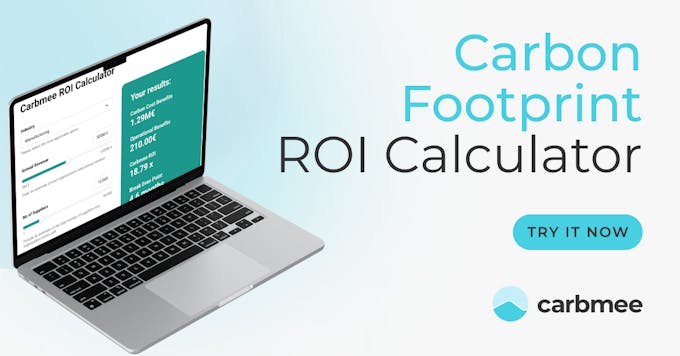Sustainable Decision-Making
Sustainability is no longer just a corporate aspiration—it’s a business imperative. But as the Sustainability Intelligence Report 2025 by Carbmee reveals, a striking gap remains between corporate sustainability commitments and the ability to operationalize them effectively. Businesses worldwide are facing increasing pressure from regulators, investors, and consumers to take action, but many still struggle with execution due to data limitations, technological barriers, and financial constraints.
The Commitment vs. Action Dilemma
The Commitment vs. Action Dilemma
According to Carbmee’s research, 67% of organizations rate their sustainability commitment as high or very high. However, 47% struggle due to a lack of clear data and technology, and 28% cite insufficient digital infrastructure as a major obstacle. The challenge lies not in setting ambitious targets but in implementing effective strategies to meet them.
A recent McKinsey & Company report echoes this concern, highlighting that while 83% of C-suite executives recognize sustainability as a value driver, only 33% believe their organizations have the data and tools to measure and execute sustainable initiatives effectively.
Additionally, a 2024 Gartner survey found that 42% of organizations lack the expertise to integrate sustainability into their business strategy effectively, underscoring the importance of investing in digital tools and sustainability training. (Source)
Regulatory Pressure: A Driving Force
Governments and regulatory bodies worldwide are intensifying environmental policies. According to Carbmee’s report, 58% of organizations cite regulatory pressure as a primary driver for sustainability action. The European Union’s Carbon Border Adjustment Mechanism (CBAM) and the U.S. Securities and Exchange Commission (SEC)’s proposed climate disclosure rules are forcing businesses to become more transparent in reporting emissions and supply chain sustainability.
A recent PwC study found that 79% of investors demand increased climate risk disclosure, reinforcing the need for companies to align with emerging regulations.
The Sustainability Intelligence Report 2025
Discover how leading companies are overcoming these challenges and turning sustainability into a competitive advantage. Download the Sustainability Intelligence Report 2025
AI: A Game-Changer for Sustainability
Technology is rapidly emerging as a solution to bridge the gap between commitment and execution. Carbmee’s research highlights that 50% of organizations prioritize supply chain transparency platforms, and 41% view carbon management tools as critical to their sustainability goals.
Artificial Intelligence (AI) plays a pivotal role in this transformation. AI-driven tools can:
- Enhance emissions tracking: AI enables real-time carbon footprint measurement, ensuring more accurate sustainability reporting.
- Improve supply chain transparency: By leveraging predictive analytics, businesses can mitigate risks and identify sustainable sourcing opportunities.
- Optimize energy and resource management: AI models help companies analyze energy consumption patterns, reducing waste and improving efficiency.
A Gartner report predicts that by 2027, 60% of companies will use AI-driven sustainability tools to meet compliance and efficiency demands.
The Financial Case for Sustainability
Beyond compliance, sustainability presents a significant financial opportunity. Carbmee’s study found that 36% of organizations recognize cost savings as a key motivator, while 45% view sustainability as a competitive advantage. Research by Deloitte supports this, showing that companies integrating sustainability into their core business strategy experience higher long-term profitability and increased customer loyalty.
Furthermore, a CDP report found that businesses investing in decarbonization initiatives saw an average ROI of 27% over five years. This suggests that sustainability efforts are not just ethical imperatives but also strong financial strategies.
Expert Insights: Procurement’s Role in Sustainability
Sustainability is a growing concern for businesses, but procurement teams face unique challenges in balancing cost efficiency with environmental goals. As highlighted in the Sustainability Intelligence Report 2025, 60% of organizations cite financial constraints as the biggest hurdle, while 47% lack clear data and 32% lack sufficient technology to implement effective sustainability initiatives.
The procurement sector, traditionally focused on cost and quality management, is now being called upon to drive sustainability in sourcing and supplier relationships. However, many procurement leaders are asking, “Where do we get the data, and how can we use it to advance sustainability?”
The collaboration between Carbmee and JAGGAER provides a solution. By integrating sustainability data into procurement workflows, organizations can align cost-saving strategies with climate action:
- Enrich spend analytics with ESG-related data, including greenhouse gas emissions and supply chain risk assessments.
- Define sourcing strategies that prioritize suppliers with lower carbon footprints.
- Enhance supply chain visibility, addressing the 53% of organizations that identified supply chain complexity as a challenge.
- Automate compliance and reporting, ensuring that sustainability goals are factored into procurement decisions from the outset.
By integrating JAGGAER’s source-to-pay technology with Carbmee’s carbon management solutions, companies can measure and communicate product carbon footprints, manage Scope 3 emissions, and establish net-zero supply chain strategies.
Webinar: Walkthrough the Sustainability Intelligence Report 2025
Join us for an exclusive Carbmee - JAGGAER webinar walkthrough of the Sustainability Intelligence Report 2025, where we unpack the biggest gaps between ambition and action, and explore how leading companies are leveraging AI, regulation, and ROI to drive real progress.
Don’t miss the chance to learn how industry leaders are turning sustainability into a strategic advantage. Save your spot & get early access to the full report!
Bridging the Gap: Next Steps for Businesses
Organizations can no longer afford to delay sustainability implementation. To bridge the action gap, companies must:
- Invest in Data & AI Solutions: Advanced analytics and AI-driven platforms can transform sustainability goals into measurable actions.
- Align Sustainability with Business Strategy: Prioritizing sustainability within financial and operational decision-making ensures long-term impact.
- Stay Ahead of Regulatory Changes: Proactively adapting to emerging environmental policies reduces compliance risks and enhances brand credibility.
- Enhance Cross-Department Collaboration: Sustainability should not be siloed in corporate social responsibility (CSR) teams. Procurement, finance, operations, and supply chain management all play crucial roles.
- Educate and Train Employees: Companies that invest in sustainability literacy see higher engagement and better execution of ESG strategies.
Conclusion: The Time to Act is Now
The sustainability transformation is underway, but the gap between commitment and execution remains a critical challenge. With AI-powered technology and stringent climate regulations reshaping corporate priorities, businesses that embrace data-driven sustainability strategies will gain a competitive edge.
Sustainability is not just about compliance—it is about long-term value creation, risk mitigation, and future-proofing businesses against climate challenges. Companies that take proactive steps now will position themselves as leaders in the transition to a low-carbon economy.
To gain deeper insights and actionable strategies, download the full Sustainability Intelligence Report 2025.
![[object Object]](https://images.prismic.io/carbmee/Z-mX7XdAxsiBwFxw_articlesthumbnailimg-1280_720px-.png?auto=format,compress)




